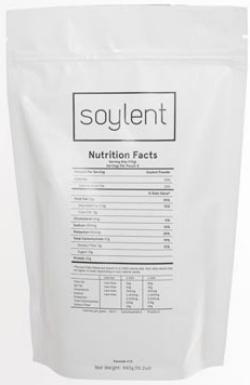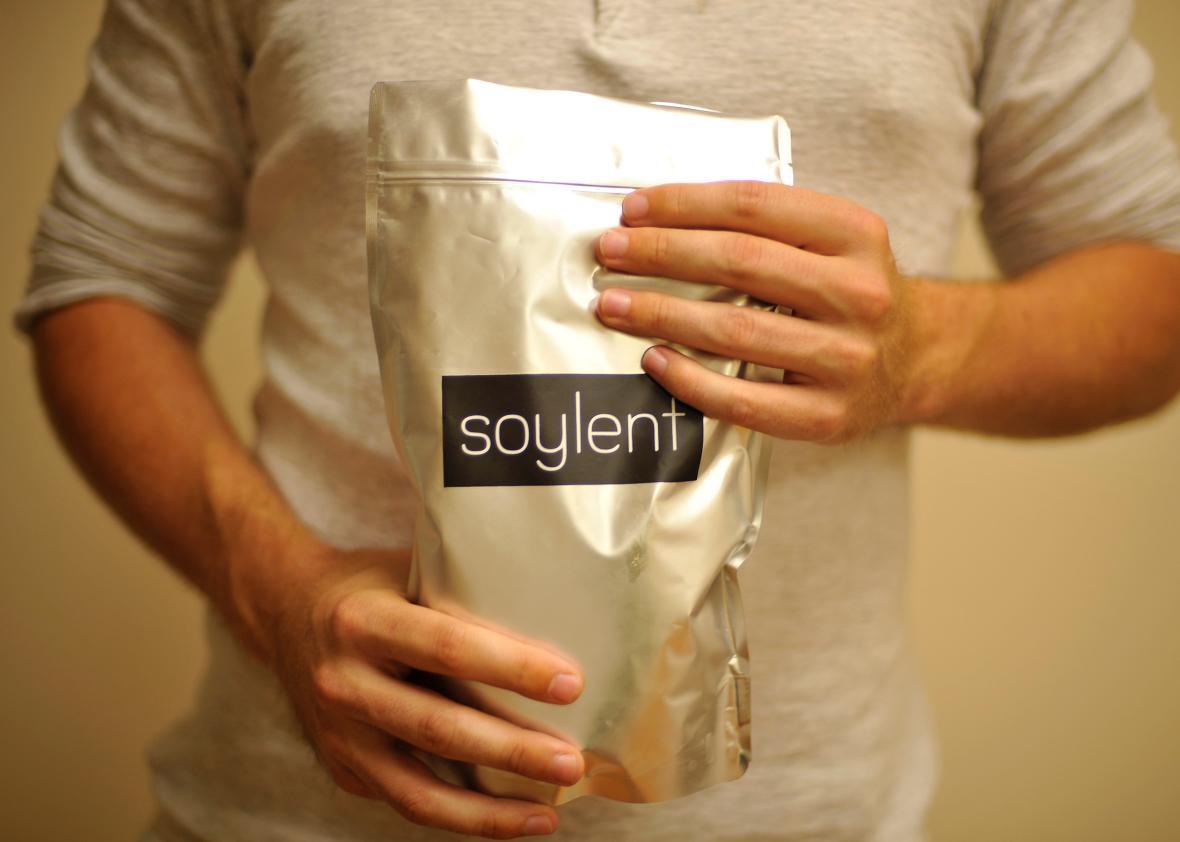It’s hard to imagine a food more polarizing than Soylent, the meal replacement drink created by a 23-year-old engineer who was tired of ramen and dirty dishes. Depending on whom you ask, this “food of the future” is either “sperm-esque” fuel for tech bros or the solution to global hunger. The taste is polarizing too—with comparisons ranging from “someone wrung out a dishtowel into a glass” to “succulent cake batter.”
Given all of this, the fact that Soylent is also made with GMOs seems secondary. But the company is not one to shy away from controversy, so it wasn’t a huge surprise last week when Rosa Labs, the maker of Soylent, doubled down on its pro–GMO stance with the blog post “Proudly Made With GMOs.” Soylent may not be the most approachable poster child for GMO food. It’s only sold online, so the “PRO GMO”–labeled bottle that adorns the blog isn’t even something you’ll encounter in the grocery store (if it exists at all). But it still offers a viable alternative in a debate that for too long has been dominated by an anti-science fear of GMOs. Maybe Soylent’s pro-GMO message could serve as a template for how we could label genetically engineered foods—with pride.
Soylent’s pro-GMO message is noteworthy because of how it contrasts with most companies’ desperate attempts to avoid the GMO debate altogether. The companies who talk about their use of genetically engineered ingredients tend to do so diplomatically, pointing to the consumer’s “right to know” rather than offering impassioned defenses of their products. Most companies prefer to be as neutral as possible, but that stance may become untenable in the future. Thanks to the recent passage of the federal GMO labeling law, food companies who use genetically engineered ingredients will have to either agree to label or remove GMOs entirely. It would change the game if the GMO label could be interpreted not as a warning—as those pushing for the labels intend—but as an attribute.
Of course, Soylent’s argument for GMOs isn’t actually controversial at all, scientifically speaking. Rosa Labs just gathered the same arguments scientists have made for years and compiled them into an easily digestible blog post that goes beyond establishing GMOs as safe and praises them as lifesavers. Genetically modified crops offer huge benefits to farmers, consumers, and the environment without posing any threat to human health. But none of that will persuade diehard opponents of GMOs, who routinely reject those same arguments from scientists.

Soylent
Still, many companies have responded to the controversy by simply removing GMOs so they don’t have to label them. In the past couple years, General Mills removed GMOs from Cheerios cereal, Hershey’s is transitioning to non–GMO cane sugar and Dannon announced it will go GMO–free too. All three companies say they made the switch to satisfy consumers, and anti-GMO activists directly campaigned both General Mills and Hershey to remove GMOs from their products.
But removal is probably neither the most profitable nor the safest option in the long term. Companies may think their food is more marketable without GMOs, but there is no guarantee removing them will yield an increase in sales, perhaps because support for GMO labeling doesn’t always translate into people purchasing more non–GMO products in practice. Removal also doesn’t make said products any safer. As the makers of Soylent point out, there is ample scientific consensus on the safety of these crops as compared to those bred by conventional methods. Genetically engineered crops like soy and corn have been shown to be nutritionally equivalent to their conventional counterparts—in fact, going GMO–free can even result in a less nutritious product, as is the case with non–GMO Cheerios and Grape Nuts.
Soylent’s pro–GMO message is bold, smart, and a powerful new example for other companies to take the case for GMOs and make it directly and proudly to consumers. Soylent doesn’t bother trying to placate anti–GMO activists, and that’s a shrewd strategy worth copying, since most of these opponents won’t be satisfied with anything less than a world free from GMOs. Surveys suggest most consumers aren’t all that familiar with the scientific evidence on GMOs. Companies could follow Soylent’s lead and realize that there is a wide swath of consumers who could be convinced by clear messaging—their products are made with GMOs for good reasons. This messaging should go beyond defending these foods as safe and also clarify that the science shows they’re beneficial.
Perhaps the best way to label GMOs is with pride.
